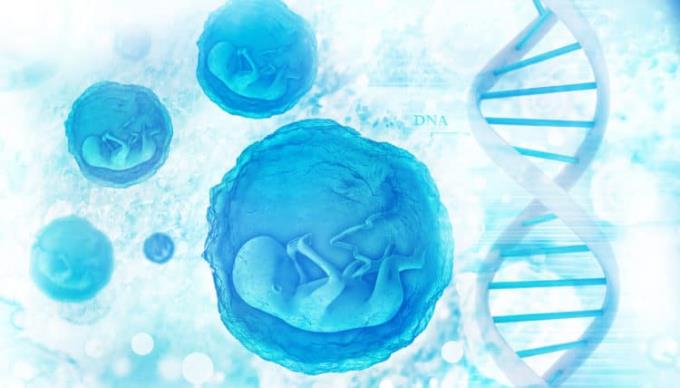Are you pregnant and need to learn about folic acid for pregnant women? Folic acid is essential during pregnancy, so it is important to get enough of this micronutrient during pregnancy.
Today the number of babies born with birth defects is increasing. Many mothers are confused about the reason why their babies are born with birth defects even though they have followed a very nutritious and complete diet.
The sad fact is that very few people know that the main cause of birth defects is the deficiency of folic acid in pregnant women . So what is folic acid? Why is it so important? How to limit the above defects? Please refer to the following article to get the answer!
Answers What is folic acid and how beneficial this supplement is for pregnant women

Folic acid is one of the B vitamins (vitamin B9) and is a very important part of everyone's diet. This nutrient helps cells grow and develop. Best of all, folic acid is especially important for women before and after pregnancy.
Currently, manufacturers often add folic acid to foods such as cereals, flour, bread, pasta, baking ingredients, cookies, cookies. In addition, some other foods rich in folic acid for pregnant women include:
Vegetables such as spinach, broccoli, fish lettuce, okra, asparagus and nuts like dried beans, peas or yeast, mushrooms;
Fruits such as banana, melon, lemon, orange juice;
Beef liver and kidneys.
Folic acid supports and ensures a healthy development of the baby's brain and spinal cord. Even before you know you're pregnant, your baby's brain and spinal cord are formed in the womb. The supplementation of enough folic acid for pregnant women in the first 3 months will help the fetus develop normally and healthy. In addition, this acid can help you and your baby limit the potential health risks. Taking folic acid at the right time and in the right dose will reduce the risk of pregnancy complications by 72% .
Effects of folic acid on the fetus and pregnant mother

1. Prevent birth defects
Folic acid for pregnant women helps prevent serious birth defects affecting the brain and spinal cord. These defects can include neural tube defects (NTDs), such as spina bifida and part of the brain lacking.
2. Prevent anemia
Folic acid plays a very important role in supplying blood cells to the body, they help to create new cells, including red blood cells. Pregnant women who lack large amounts of folic acid will have a high risk of miscarriage, premature birth, susceptibility to postpartum psychosis, fetal malnutrition.
Babies born at birth are also susceptible to cardiovascular diseases, cleft palate if mothers lack folic acid seriously. Therefore, the adequate supplementation of folic acid will help prevent anemia leading to these phenomena. However, the body does not store much folic acid, so you should use it with supplements to help supplement folic acid for both yourself and your baby.
3. Reduce the risk of cancer
Investigations show that folic acid may reduce a small percentage of the risk of cancer-related diseases, such as breast cancer.
Some people use folic acid to prevent colon cancer or cervical cancer. It is used to prevent heart disease and stroke as well as to reduce the level of chemicals in the blood (hemolysis). However, these hypotheses are subject to a lot of controversy and cannot come to exact conclusions.
4. Prevent some other diseases
Folic acid is also used for dementia, dementia, hearing loss due to age, reducing signs of aging, weak bones (osteoporosis), restless legs, trouble sleeping, depression, neuralgia, pain. muscle, AIDS, childhood vitiligo and Fragile-X syndrome.
Effects of folic acid on children

1. Child's language skills
Folic acid has many benefits for mother and fetus because it affects brain development and prevents the risk of neural tube Defects (NTD) in children.
In a 2011 study, when comparing mothers who did not use folic acid, it was found that mothers who took folic acid for about 4 weeks before pregnancy reduced the risk. have a baby with language delay .
Although mothers are still supplementing with other substances at the same time, folic acid still plays a big role in reducing the risk of children developing slowly in language skills.
2. Child health
Folic acid also has the ability to help prevent defects of the brain and spinal cord, mainly neural tube defects in the fetus .
In the most severe cases the baby can develop anencephaly - a birth defect that leaves the baby without a brain or skull. Children who have this disease often have difficulty living long. In addition, the child is also likely to have spina bifida - spina bifida causing permanent disabilities.
The amount of folic acid suitable for pregnant women according to each stage

The recommended amount for all pregnant women is 400 mcg / day. If you get folic acid from multivitamins, make sure to check that the amount of folic acid in a dose is enough. In addition, mothers can also get folic acid from supplements.
Below is the amount of folic acid mothers should take from before pregnancy to after birth:
Before pregnancy: 400 mcg
Folic acid supplement for pregnant women in the first 3 months: 400 mcg
From 4 to 9 months: 600mcg
Breastfeeding: 500 mcg.
You can buy folic acid supplements at pharmacies or take a multivitamin before giving birth or during pregnancy. Check the labels on the multivitamin bottles to make sure they contain the 400 mcg of folic acid you need.
Some women at high risk of having a baby affected by a neural tube defect may be advised to take a higher dose of 5 mg folic acid per day until 12 weeks of pregnancy. The risk of having a baby with a neural tube defect is increased if:
The woman or their husband has a neural tube defect
They were pregnant and the baby had a neural tube defect
They or their husbands have a family history of a neural tube defect
Have diabetes.
Also, women who are taking antiepileptic drugs should consult their doctor as they may need to take higher doses of folic acid. It is best to teach yourself about epilepsy, anti-epilepsy and pregnancy.
If you fall into the above cases, tell your doctor to be prescribed a suitable dose of folic acid for pregnant women. Your doctor may also recommend additional screening tests during pregnancy.
Some notes when adding folic acid for pregnant women

Should take folic acid between 2 meals
Vitamin C will increase iron absorption. So you should take iron - folic acid with orange juice or juice
Avoid taking drugs with tea, coffee, or alcohol because folic acid will reduce absorption
Taking folic acid is often constipated, so it is important to drink plenty of water and eat plenty of fiber
During pregnancy, doctors recommend pregnant women should immediately supplement this essential vitamin for the body (can be supplemented with common foods and using functional foods ) to make the fetus full. enough nutrients as possible, ensuring the comprehensive development of the child. If you have any questions, do not hesitate to contact the specialist immediately!
aFamilyToday Health hopes to give you a more general overview of folic acid and the importance of this vitamin for pregnant and pregnant mothers.
















